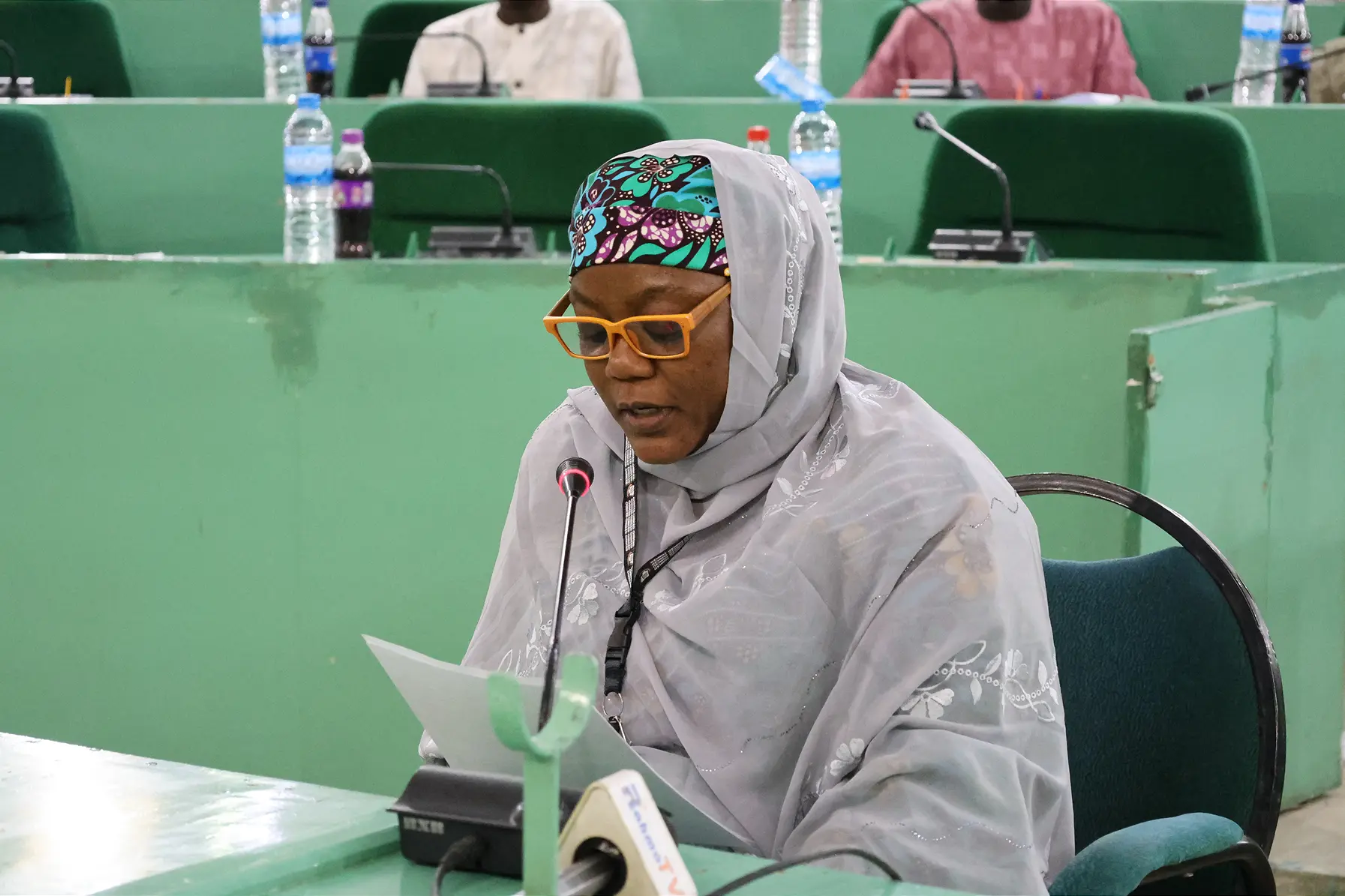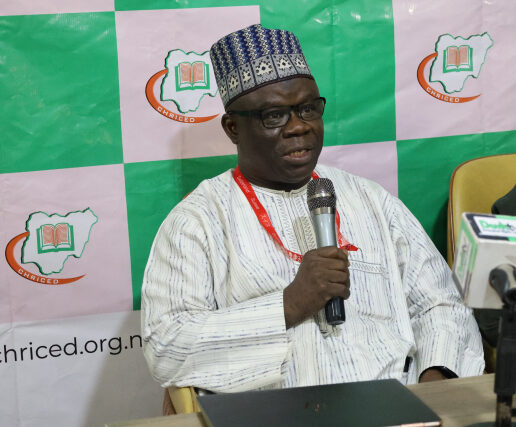
Resource Centre for Human Rights & Civic Education (CHRICED) Awarded Macarthur Funds Supporting an Equitable Recovery
The Resource Centre for Human Rights & Civic Education (CHRICED) was today awarded a grant from the John D. and Catherine T. MacArthur Foundation for its work to support, and strengthen the advocacy, voice and organizational development of the Original Inhabitant (OI) communities in the Federal Capital Territory (FCT). Using the grant, CHRICED will work in concert with OI communities to equip them with the skills and technical capacities required to sustainably and lawfully advocate for the promotion of their rights and interests. This project will enable FCT OIs work towards an inclusive, resilient and sustainable development pathway, especially in the context of the devastation imposed by the COVID-19 pandemic.
The grant is part of roughly $80 million in awards MacArthur announced today in support of the Foundation’s Equitable Recovery initiative, centered on advancing racial and ethnic justice. The initiative is funded by MacArthur’s social bonds, issued in response to the crises of the pandemic and racial inequity.
“CHRICED expresses its gratitude to MacArthur Foundation for entrusting us with this historic responsibility. As an organization campaigning for human rights and justice, we are excited about this opportunity to work with the natives of the FCT. Our project will respond to the marginalization and the historic injustices meted against FCT OIs by putting their issues in the fore front of the governance and decision making processes. CHRICED will support the Original Inhabitant Groups (OIGs) with the technical skills and capacities to enable them to sustainably and effectively campaign for their rights and interests. This work becomes even more critical in the face of the devastation imposed by the COVID-19 pandemic. CHRICED is ready to campaign strategically alongside FCT s, until the injustices against them are redressed.”
“As we emerge from this moment of crisis, we have an opportunity to improve the critical systems that people and places need to thrive. Our systems and structures must be rebuilt,” said MacArthur President John Palfrey. “We are committed to ensuring that our response to the pandemic is focused on supporting the reimagining of systems that create a more just, equitable, and resilient world.”
About CHRICED
Resource Centre for Human Rights & Civic Education (CHRICED) is a Nigerian non-profit, and a knowledge-driven organization working for the promotion of human rights, rule of law, democracy and accountability. Registered in October 2006 under the Companies and Allied Matters Act No. 1 of 1990, Part C; CHRICED envisions a genuinely democratic Nigeria where the well-being of the citizens is the central concern of the government. CHRICED’s mission is to promote democratic, human rights and accountable governance in Nigeria. For core programming, CHRICED uses civics, advocacy, and outreach to mobilize vulnerable and marginalized segments of the population to implement innovative grassroots-focused programs aimed at energizing citizen action for the promotion and protection of their rights.
CHRICED is one of the 15 organizations receiving grants advancing the Self-Determination of Indigenous Peoples.
To advance racial and ethnic justice, MacArthur is supporting work in that focus, as well as three other areas:
•Racial Justice Field Support, with a focus on combatting anti-Blackness, supports building Black power by supporting Black-led and -focused philanthropic organizations. MacArthur also will take a leadership role in positioning reparations and racial healing as issues that philanthropy helps to meaningfully address.
•Public Health Equity and COVID-19 Mitigation and Recovery supports improving access to resources for immediate health challenges while advancing new policies, models, and structures to support a more equitable and resilient public health sector in the future.
•An Equitable Housing Demonstration Project supports restoring communities and reducing incarceration and housing instability by generating an array of housing solutions that can help to permanently end the use of jails and prisons as housing of last resort.
MacArthur identified the areas through a participatory process with a diverse group of external advisors, who informed its strategic approach. The participatory process aimed to center the voices of communities that are affected by the Foundation’s decisions and have a stake in the grantmaking outcomes.
Almost two-thirds of the awards represent new grantee relationships, and most of the organizations are Black, Indigenous, and People of Color-led or -serving. The grants also reflect MacArthur’s global reach: 45 percent of the new funding supports work outside of the U.S., including 12 percent in India, and 14 percent in Nigeria, where MacArthur has offices.
Equitable Recovery Initiative
In the fall of 2020, MacArthur established a $125 million Equitable Recovery Initiative. The Foundation deployed $40 million of bond proceeds through 24 grants. Initial grants focused on strengthening voter mobilization and election protection, addressing anti-Black racism, and supporting Native Americans impacted by COVID-19. Grants also supported Black, Latinx, Asian, and Indigenous arts organizations in Chicago, technology and justice, and a fund for social entrepreneurs advancing racial equity.
MacArthur media contact: Kristen Mack, [email protected]
CHRICED media contact: Armsfree Ajanaku, [email protected], +2348086985104








